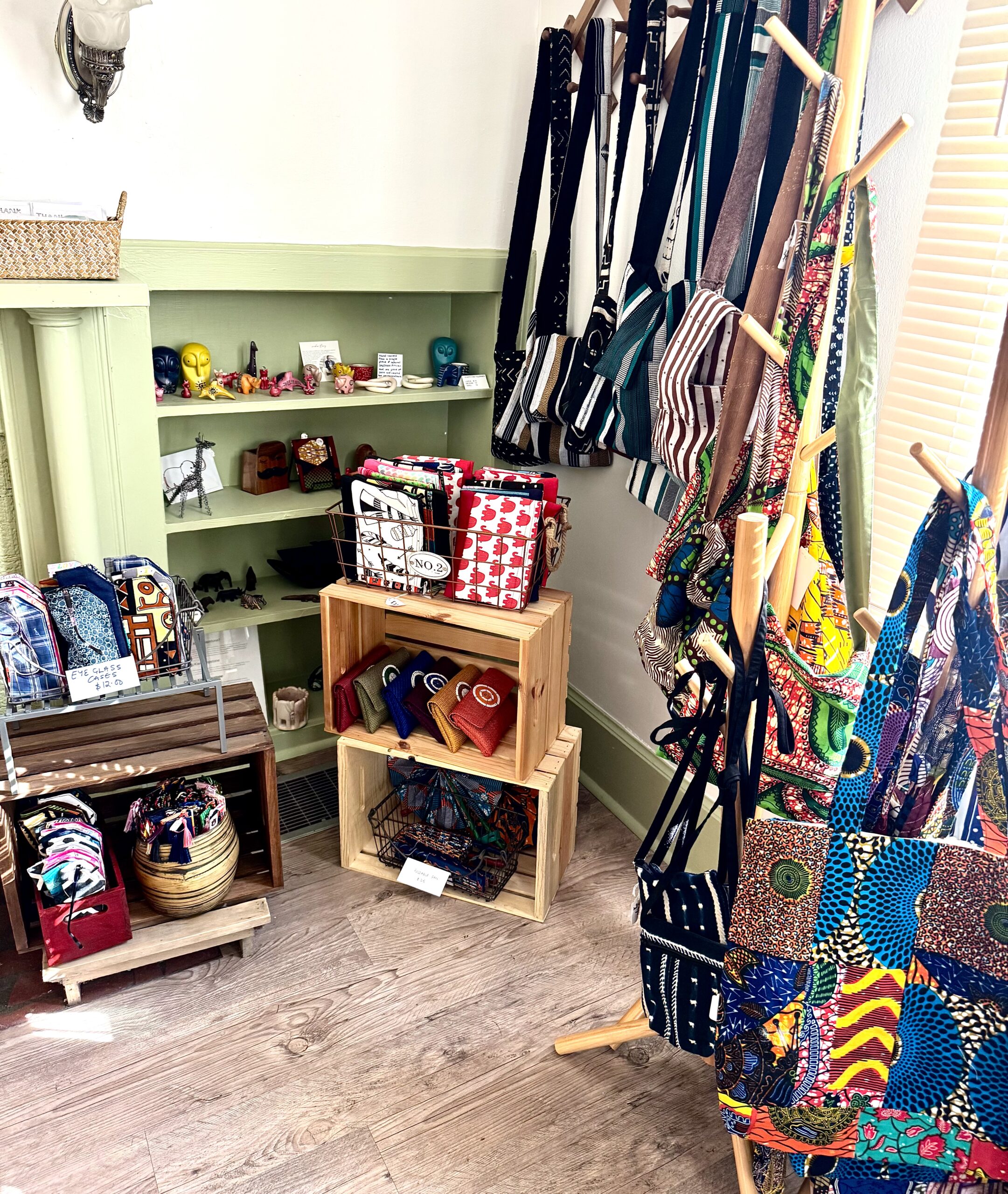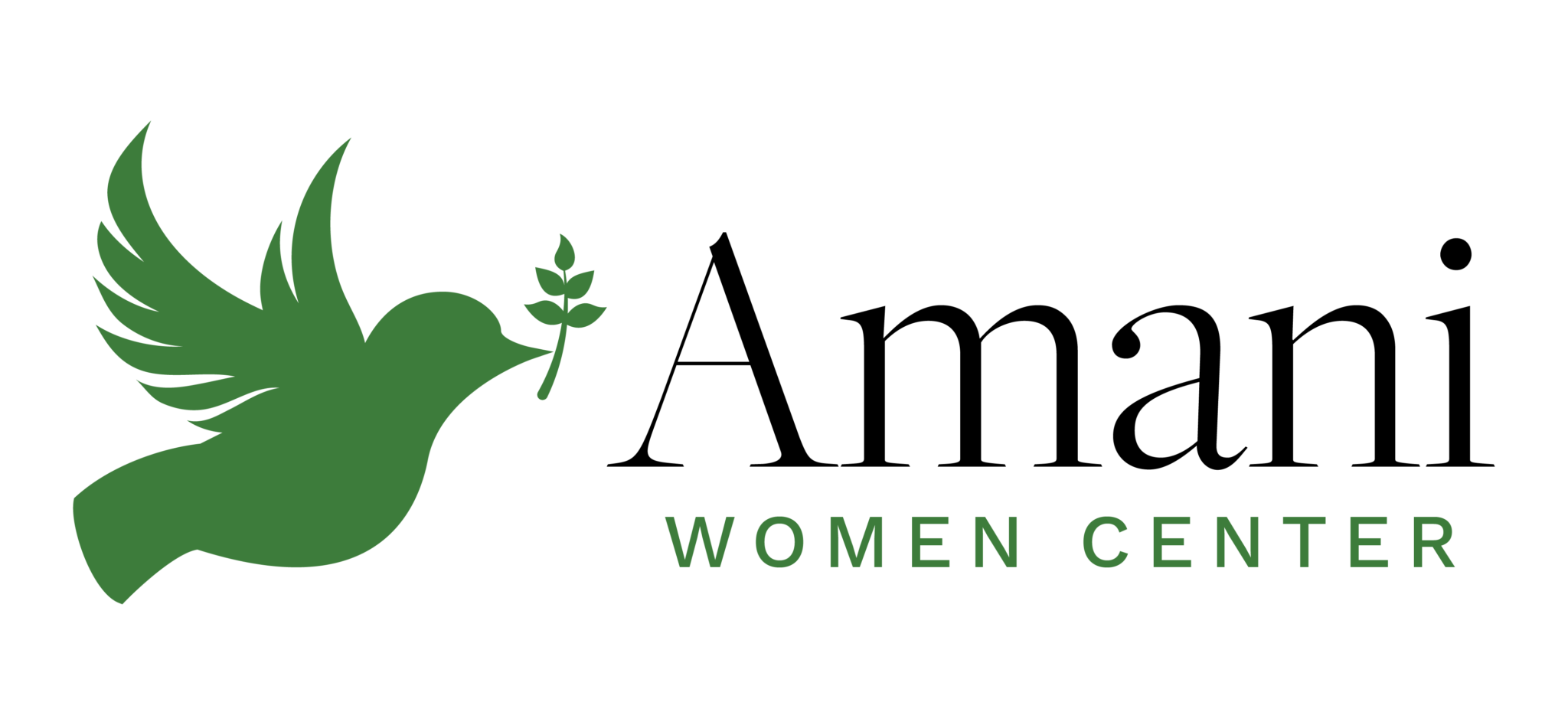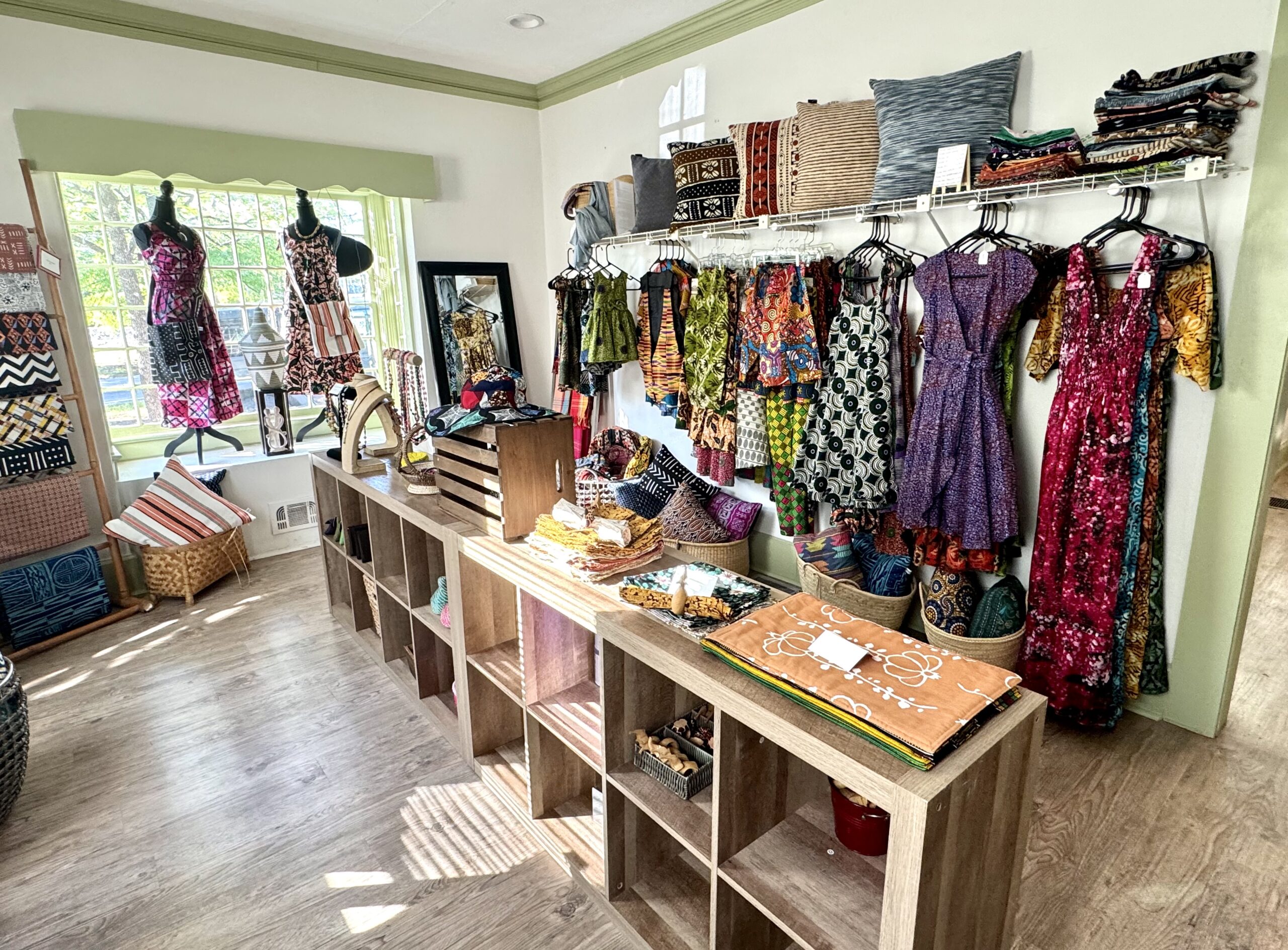Clarkston Showroom Displays Women’s International Talents – The Champion
Click Link – Article By Gale Horton Gay – The Champion.

Vibrant colored cloths, beads, and patterns dominate in a small showroom in Clarkston, where the handiwork of women who once fled their homelands are now on display.
Dresses, wine tote bags, napkins, table runners, necklaces, earrings, pillows, and other crafts are among the items available for sale at Johari Clarkston on Church Street. Most of the work are those of local refugee and immigrant women who have gained sewing skills through the Amani Sewing Academy.
Many of the women-turned-entrepreneurs hail from Eritrea, Congo, Rwanda, Afghanistan, Ethiopia, Burma, Syria, and other countries.
The showroom is located in the Amani Women’s Center, whose mission is to provide “culturally tailored programs and services that empower and contribute to the economic security, spiritual, mental, and physical well-being of refugees and immigrant women.” It offers sewing, health and leadership programs as well as an English as a second language buddy program, translation and interpretation, and other services.
Doris Mukangu, founder of the center, said the purpose of the showroom “is to support the women who make the products.”
The majority of items in the showroom are made in Clarkston, but some come from female African artisans in Kenya and Ghana, according to Mukangu.
Fabric-covered button necklaces featured in the showroom are part of the Save Our Sisters Initiative (SOS) that “seeks to secure critical medical care for refugee women suffering from serious health problems caused by Female Genital Cutting (FGC),” states a sign in the showroom. One hundred percent of the $55 price of the necklaces goes to SOS, she said.
Throughout the showroom interspersed with the merchandise are signs explaining details about the goods and/or fabrics such as one about African mudcloth and another about kikoi.
“The Kikoi is made of cotton and patterns are woven rather than dyed into the fabric. As with all sarongs, it is a single piece of cloth which is wrapped around the waist, and rolled over outwards a couple of times,” states one sign.
“We do quite a bit of repurposing,” said Mukangu pointing out totes created from saris and bed sheets transformed into wrap skirts.
Cosmetic bags for $20, tote bags for $45, bookmarks for $8, and African-style dresses with differing price tags are among the items available for purchase.
The women who made the goods do not have to wait for their crafts to be sold to receive payment. They are paid in advance for their creations and at a fair market rate, according to Mukangu.
“They are paid outright for their work. I don’t like the idea of having them wait,” she said. “Our intention is to make sure they earn livable wages.”
A $12 to $15 per hour production rate is used to calculate prices, she said adding, “We are very intentional about that. We hold our partners accountable, but we also hold ourselves accountable.”
Partners who may seek to buy items from Johari or propose production projects using Amani graduates’ skills are also expected to offer the women a livable wage, said Mukangu.
In addition to the money the women earn, having their goods selected and sold is a source of pride.
Word of mouth, birthday get-togethers, and shopping parties by groups such as the Delta Sigma Theta sorority have been the main drivers of customers to Johari Clarkston, she said.
Mukangu said she wants to increase the showroom’s visibility to attract more shoppers and increase sales.
In the past they have also held events such an Ethiopian coffee ceremony to attract people to the venue.
“We just try to get creative to get people to come see us and see the showroom.”


